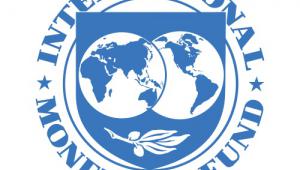The IMF was one of the “troika” lenders to Greece, along with the European Central Bank and European Union.
After eight years, the country exited its €288.7bn bailout package on 20 August, although its debt remains high.
The country had to bring in significant reforms to access the bailout funds.
Matthew Oxenford, finance researcher at Chatham House, noted that the IMF was mandated to “protect the poorest”.
However, he told PF International this was not always “borne out in reality” because of the demands it makes.
“If too many people lose their livelihoods in an already bad economy, it can significantly exacerbate the downturn – which is what we saw in Greece,” he said.
The fund “has to walk a fine line” in structuring rescue programmes so they don’t “trap the country in debt while forcing them to slash social services”.
Since 2010, Greece has lost 25% of its GDP, its unemployment rate is almost 20% and the national debt is about 180%.
In 2010, its debt was a little more than 140% of GDP.
Tim Jones, policy officer at the Jubilee Debt Campaign, said: “Greece may have exited the formal bailout, but its economic crisis continues.”
He added that developing countries’ board members told the IMF in 2010 that austerity measures and loans to bail out Greece’s private lenders would make the Greek economy crash and cause its debt to continue to grow.
“The IMF should have refused to join any programme that bailed out private lenders and which imposed policies that increased poverty and inequality,” Jones said.
Other countries, including Argentina, Ghana, Pakistan and Turkey, have recently received financial help from the IMF.
However, many countries try to avoid knocking on the IMF’s door as the scrutiny and conditions imposed often leads to public spending cuts and falling living standards.
Bernard Anaba, policy analyst at the Integrated Social Development Centre in Ghana, told PF International that the African nation, which has gone to the IMF 15 times over the past 50 years, has seen its poorest citizens hit by the “painful adjustments” that come with the fund’s policies.
Academics also told PF International that Turkey could find it difficult to secure an IMF loan after it issued retaliatory tariffs on US goods in August.
America is a huge stakeholder in the fund, holding around 16% of the votes.
William Hale, emeritus professor at SOAS in London with special focus on Turkey, said the US was “likely to demand harsh conditions” in the event of an IMF bailout.













